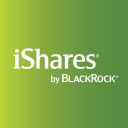
FMP

iShares Adaptive Currency Hedged MSCI Japan ETF
DEWJ
CBOE
Inactive Equity
The investment seeks to track the investment results of the MSCI Japan Adaptive Hedge to USD Index. The fund generally will invest at least 90% of its assets in the component securities and other instruments of the index and in investments that have economic characteristics that are substantially identical to the component securities. The index has been developed as an equity benchmark for stocks traded primarily on the Tokyo Stock Exchange with the foreign currency exposure of the securities dynamically hedged against the USD determined systematically by four currency risk indicators: carry, momentum, value, and volatility.
25.62 USD
0.1545 (0.603%)
DuPont Analysis
The DuPont analysis, pioneered by the DuPont Corporation, offers a structured approach to assessing fundamental performance. It involves breaking down the return on equity (ROE) into various components, aiding investors in comprehending the factors influencing a company's returns.
ROE = Net Income / Average Total Equity
ROE = (Net Income / Sales) * (Revenue / Average Total Assets) * (Average Total Assets / Average Total Equity)
The company's tax burden is (Net income ÷ Pretax profit). This is the proportion of the company's profits retained after paying income taxes. [NI/EBT] The company's interest burden is (Pretax income ÷ EBIT). This will be 1.00 for a firm with no debt or financial leverage. [EBT/EBIT] The company's operating income margin or return on sales (ROS) is (EBIT ÷ Revenue). This is the operating income per dollar of sales. [EBIT/Revenue] The company's asset turnover (ATO) is (Revenue ÷ Average Total Assets). The company's equity multiplier is (Average Total Assets ÷ Average Total Equity). This is a measure of financial leverage. Profitability (measured by profit margin) Asset efficiency (measured by asset turnover) Financial leverage (measured by equity multiplier)